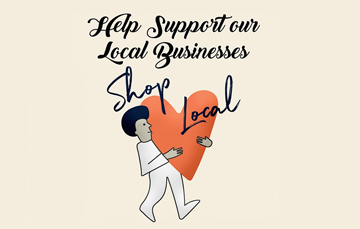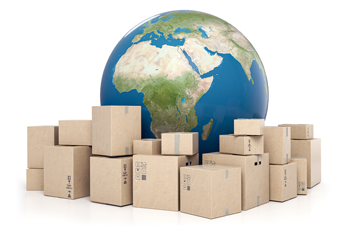Developments in logistics in 2021

The coronavirus pandemic accelerated various trends in ecommerce logistics. Some things have drastically changed when it comes to shipments, consumer behavior, shipping fees and cross-border ecommerce. Here are some logistical developments to keep an eye on.
The world of logistics is always moving. But with the outbreak of the coronavirus in 2020 and the ongoing measures that resulted from this, things really accelerated. Ecommerce News Europe asked Jeroen Dekker, managing partner at fulfillment company Active Ants about the latest developments in logistics.
The rise of marketplace sellers
Due to the corona crisis, more and more companies are moving their business online. On the one hand, these are companies that were offline oriented and are now seizing their opportunities online. On the other hand, there are newcomers who are jumping on the opportunities offered by the ecommerce sector. “Especially with the possibilities offered by the various ecommerce software platforms, it’s just a small step to start selling online”, Dekker explains.
More and more international shipments
As a logical consequence of the possibilities offered by marketplaces, Dekker sees that an increasing number of shipments are sent internationally. And of course, cross-border ecommerce isn’t new. What’s new is that carriers are making more and more demands on the shipment. “Transporters prefer small, light packages. Fees are charged for anything larger or heavier than desired.”
Fees are charged for anything larger than desired.
Niches within a niche
The vast majority of online retailers were already specialized in a particular product group. Among the newcomers, Dekker sees that this specialization is often being extended even further. Many start-ups start an online store with just one or a few products, often in letterbox size. “This keeps shipping costs low, which has a positive effect on the margin.”
Support your locals, and sustainability
 A development that is at odds with the rise of dropshipping suppliers is the “support your locals” initiatives. In addition to consumers wanting to prevent local entrepreneurs having to close their doors for good, sustainability also plays a role in this. A large part of consumers is increasingly critical about the distances that products have to travel before they arrive at their homes.
A development that is at odds with the rise of dropshipping suppliers is the “support your locals” initiatives. In addition to consumers wanting to prevent local entrepreneurs having to close their doors for good, sustainability also plays a role in this. A large part of consumers is increasingly critical about the distances that products have to travel before they arrive at their homes.
‘Sustainable logistics is gaining more ground’
Consumers (and companies) not only look critically at production, but also at logistics. Local, sustainable ways of transportation are gaining more and more ground. Dekker: ” We are always looking for green(er) options, both among the carriers and ourselves. For example, we use automatic packaging machines, which means that we need just a minimal amount of packaging and filling material.”
We use automatic packaging machines, so we need a minimal amount of packaging and filling material.
More pressure on delivery capacity
During the various lockdowns, online shopping proved to be a good and safe way to get products. As a result, the number of parcels is higher than ever, which puts extra pressure on the logistics companies. Moreover, they have to deal with destinations that are difficult or even impossible to reach. And at the same time, many consumers still want their orders delivered as soon as possible.
‘Spread your orders across the delivery services’
 Since last year, a so called corona fee has often been calculated for destinations outside Europe. And in addition, some carriers apply a limitation on the number of parcels they take with them. “That’s why we advise our customers to spread the orders across several delivery services”, Dekker says.
Since last year, a so called corona fee has often been calculated for destinations outside Europe. And in addition, some carriers apply a limitation on the number of parcels they take with them. “That’s why we advise our customers to spread the orders across several delivery services”, Dekker says.
Imminent shortage of supplies
The logistical challenges also work the other way. Products that are produced somewhere far away and have to be shipped to Europe are also regularly subject to delays. Good stock control has always been important, but now it is a must. “In this day and age, anyone who can’t scale up quickly is no longer participating.”
In this day and age, anyone who can’t scale up quickly is no longer participating.
Robotization
But being able to scale up quickly is not only an important matter for online retailers, fulfillment companies are also busier than ever. By deploying robots – and largely automating order processing – they can easily increase their capacity. In addition, it makes the processes more efficient, less prone to errors and cheaper.
(Large) ecommerce players are also increasingly introducing robots in their own warehouses. Not in the least because robots can work better at height, which leads to storage space being utilized better and less warehouse space required.

Comments